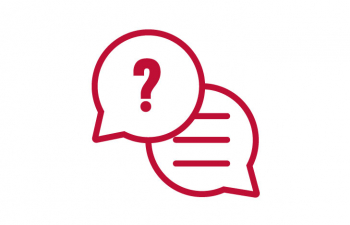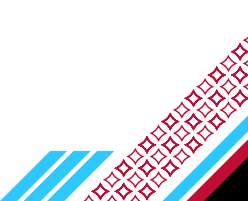Current Students
Currently enrolled in our graduate counseling program? Consider this your one stop shop for all the resources you may need while working towards your degree. Explore below to find handbooks, forms, practicum and internship documents, course information, details about scholarship opportunities and more!


Scholarships and Funding

School Counseling Student Association

Frequently Asked Questions
Join our Listserv
About Us
Course Offerings
The counseling program meets state standards for certification and the curriculum includes a carefully constructed blend of in-person, online and hybrid-style courses. It also adheres to the profession's accepted and established practices for training school counselors.
Fall Semester
| Course Name | |
|---|---|
| COUN 610 | Introduction to School Counseling |
| COUN 614 | Practicum |
| COUN 620 | Career Counseling |
| COUN 732 | Group Counseling |
| COUN 770 | Comprehensive School Counseling Programming |
| COUN 753 | Counseling Theory and Skills |
| COUN 771 COUN 772 COUN 773 | Internship |
| SPSY 795 | Research and Program Evaluation |
| SPED 530 | Exceptional Child |
| COUN 798 | Independent Study |
Spring Semester
| Course Name | |
| COUN 610 | Introduction to School Counseling |
| COUN 612 | Lifespan Human Development |
| COUN 614 | Practicum |
| COUN 615 | Cultural & Ethical Foundations |
| SPSY 622 | School Behavior Assessment and Intervention |
| COUN 732 | Group Counseling |
| COUN 771 COUN 772 COUN 773 | Internship |
| SPED 530 | Exceptional Child |
| COUN 798 | Independent Study |
Summer Session
*Note: 1-2-credit COUN 789 electives are offered in summer and J-term sessions.
| COUN 612 | Lifespan Human Development (not always offered in summer- check with adviser) |
| SPSY 795 | Research and Program Evaluation |
| SPED 530 | Exceptional Child |
| COUN 700 COUN 701 COUN 702 | Higher Education Administration Elective Track Part 1 and Part 3 in summer term; Part 2 in J-term |
| COUN 717 COUN 718 COUN 719 | Substance Use Disorder Elective Track Part 1 and Part 3 in summer term; Part 2 in J-term |
Forms
- Degree Planning Form (for students beginning summer or fall 2022 or later)
- Degree Planning Form (for students beginning spring 2017 or later)
Student Handbooks and Evaluation Forms
Our student handbook is designed as a helpful guide for counseling students. The handbook labeled with the year you started taking courses as an admitted student is your designated handbook.
- Fall 2025-Spring 2026
- Fall 2024-Spring 2025
- Fall 2023-Spring 2024
- Fall 2022-Spring 2023
- Spring 2022
- Fall 2020-Spring 2021
- Fall 2019-Spring 2020
- Fall 2018-Spring 2019
Student Evaluations:
Textbook Info
You can expect to spend approximately $800-$1000 on textbooks throughout the program. Prices vary depending on preferences (hard copies versus electronic copies, etc.). Some students rent books and purchase others that are used in multiple courses.
Where do I purchase or rent my books?
Amazon and Chegg are popular options but you can find many options, including textbooks.com, Campus Book Rentals, Cengage, ecampus, etc. Choose the option that works best for you!
When should I purchase/rent my books?
You should plan to purchase and/or rent your books prior to your first planned course meeting.
How will I know what books I need?
Professors will email you a list of required textbooks at least one week prior to classes starting.
Should I buy or rent?
This is up to you! Required textbooks are chose with care and with an intention to serve as professional resources beyond graduation.
Practicum Information
Practicum is a field experience for counseling students in their second or third semesters of the program. You'll spend 100 hours over the course of the semester working with licensed counselors in authentic settings to practice counseling skills. Specifically, you'll be spending 3-5 hours per week in the schools during the school day and you'll be attending a weekly seminar from 4-8 p.m. Speak with your adviser to learn more about how this course fits into your degree plan.
Questions about practicum experiences (COUN 614: Practicum) may be directed to Caroline Baker, program director, at caroline.baker@uwrf.edu or 715-425-3237.
Internship Information
Have questions about counseling internships? Email caroline.baker@uwrf.edu or call 715-425-3237.
Portfolio Template and Materials
A portfolio is required from every student in the counseling program. In each counseling classes, you'll prepare several standards for review, progressively completing the final portfolio due during your internship course. You must use the template below, which indicates required artifacts for each standard. Beginning in COUN 610, you'll create a space in OneDrive to manage your portfolio and will submit links to your site to your instructors. More detailed information will be shared in your classes. Questions? Contact your adviser!
- 2024 Portfolio Template: Students beginning in spring 2024 should use this template.
- Rubric: This will be used to evaluate your portfolio throughout the program. Make sure to use the feedback you receive to make revisions prior to the final submission during your internship.
- OneDrive Instructions: Use these instructions to create and submit your portfolio.
Professional Organizations
Below are a list of some professional organizations within the counseling profession that may be valuable to you. Learn more at each of their websites.
- Wisconsin Department of Public Instruction
- Wisconsin School Counselor Association
- Minnesota School Counselors Association
- Wisconsin Counseling Association
- Minnesota Counseling Association
- American School Counselor Association
- American Counseling Association
- Association of Specialists in Group Work (division of ACA)
Praxis Information
The Praxis exam is required by many states when you apply for an educator license. We strongly encourage students to take the exam during your internship seminar. However, the Praxis is not required to graduate from the program and is not currently required for a Minnesota or Wisconsin license (unless you leave Wisconsin and return at a later time to apply for a new license).
Visit Licensure Requirements (ets.org) to find more information about the Praxis exam, including links to a study guide and practice test.
When should I take the exam? We recommend you wait to take the exam until you have completed all the core courses and have some practical experience. The exam includes sections that are based on academic learning and practical counseling skills that are definitely enhanced in your practicum experience. While exam dates are available several times per year and you may schedule your exam on any of these dates, the goal of the program is to assist you in acquiring the knowledge and skills needed to take the exam at the appropriate time in your program and pass it!
What can I do to prepare? Check out the ETS website for information, including study guides and practice tests. Don't be surprised - be prepared!
What is a passing score? A passing score is 159 (Test Code 5422).
Where should I have more scores sent? Please use code 1918-UNIV WI-RIVER FALLS-EDUCATION when selection which institution to have scores sent to.
Please note: This exam does not take the place of the comprehensive exam.
School Counselor Interview Questions
Schoolcounselor.com provides resources for aspiring school counselors. Visit schoolcounselor.com/professional-development/interview-questions/ to view a list of questions designed to prepare you for interviews.

